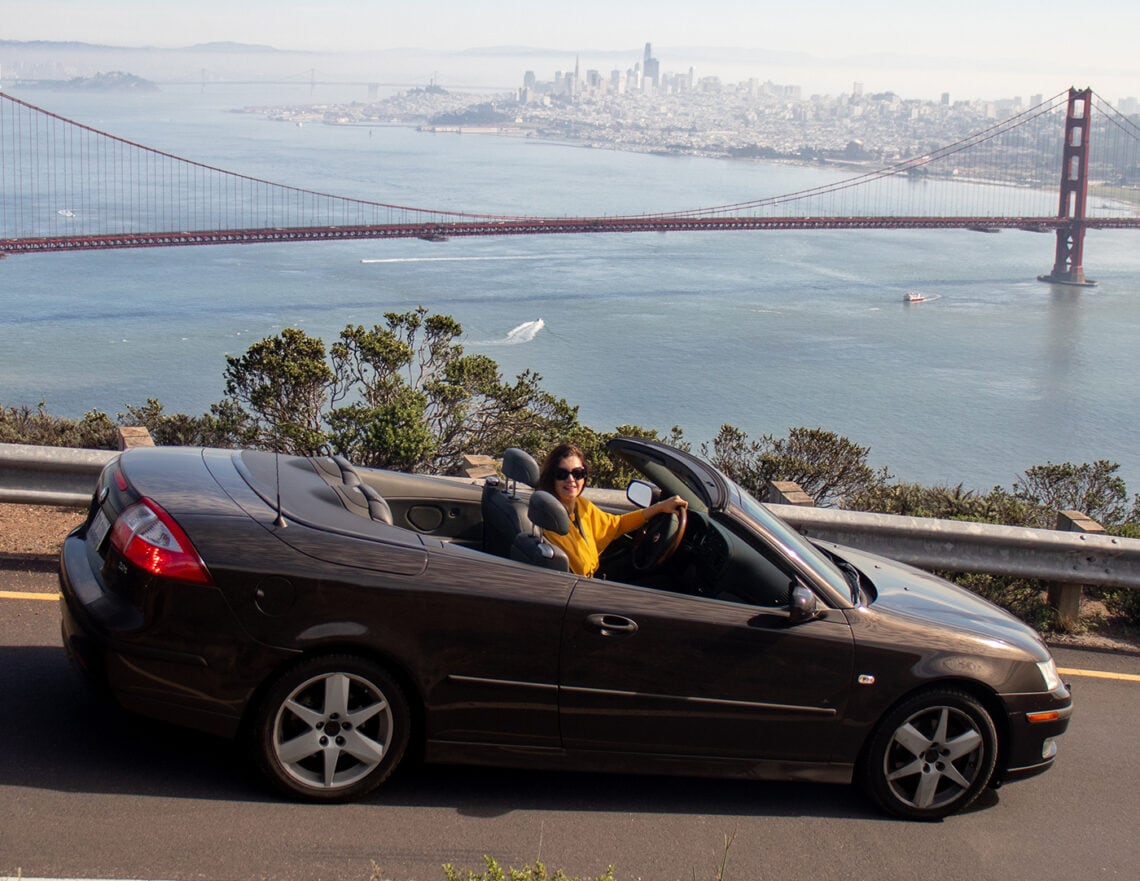
Product marketing thrives on analogies. So, it’s not too surprising that I was struck by a great analogy while driving home from our Pleasanton, CA office, in my new car – well, it’s a new-to-me vintage 19-year-old Saab – after a product session about Rimini Connect™ and interoperability. Avoiding the Bay Bridge (thanks Waze!), I was streaming one of my favorite Spotify playlists through my classic, non-satellite, AM/FM radio.
That’s when the analogy hit me: I was simply living in a world of interoperability and loving every minute of it. Despite the venerable age of my auto, I was able to easily access modern apps such as Spotify and Waze with the aid of a Bluetooth FM transmitter.
That’s kind of like how our clients are now able – thanks to the new Rimini Connect solution – to extend the value of their existing ERP systems and databases while still having access to the latest browsers, operating systems, and email applications.
Future-proof your investment instead of replacing it
IT teams have traditionally had to decode complex, rigid compatibility matrices to determine if a new technology is compatible with their existing systems. There’s probably nothing more frustrating to users of tried-and-true ERP systems than the forced upgrades and migrations their vendors want them to undertake just to take advantage of new elements of the enterprise’s technology stack. Imagine if I was told that I had to settle for an AM/FM radio unless I replaced the entire electrical system on my car?
That resonates with me, after going car-less for the past three years and now needing to drive the occasional commute between San Francisco and the East Bay. The cost of new, and even used vehicles, didn’t make any sense for my usage; one of those electric vehicles ubiquitous in Norway would have cost at least 12x what I ended up paying for my Saab.
Sure, my baby doesn’t have SiriusXM or an imposing touchscreen monitor, but when you consider Saab’s reputation for longevity, it’s a more sustainable option than buying or leasing something new off the lot.
Many long-running ERP solutions and applications are still performing perfectly well after many years, reflecting years of fine-tuning, integrations, and customizations. So, when a vendor wants its customers to pay for expensive upgrades simply to work better with a newer browser or OS, that can cause a fair amount of angst.
Paying for ERP upgrades you don’t really need means diverting precious resources from other initiatives that could drive innovation and create new revenue-generating services. New upgrades are not only expensive, but they’re also disruptive and can be risky.
Innovating around the core
That is why many companies prefer to stay with an existing ERP release and turn to Rimini Street for IT support and managed services. On average, Rimini Street can reduce the TCO of support and maintenance for our clients by up to 75%, extending the value of current applications and customizations, while allowing them to innovate outside of their core ERP.
Adopting a composable ERP strategy for Oracle or SAP allows you to keep your well-functioning ERP system in place and deploy cloud-based capabilities that support user- and customer-facing business processes. And it allows you to get out from under the dictates of a monolithic ERP vendor.
So that’s why I like to think of my new-to-me Saab as a composable option, for which I can easily access apps and GPS directions with a relatively inexpensive Bluetooth transmitter, connecting legacy technology to new innovations and services without having to rip out or replace what I have in place.
My Saab brings me joy and is a perfect fit. There may be a new car in the future, but it’s a far away future. Saabs were built to last up to 300,000 miles and I’m not even halfway there. Call me a Snaab if you must, but the money I’ll save will pay for future travel plans and renewable energy investments.
Smart CIOs and CFOs are making the same decision: there may be a migration to a cloud ERP in the cards, but it will on their terms, on their timetable.
I’m rooting for all the IT and business leaders who have embarked on a smart path with Rimini Street. It’s both the journey and destination, and either way, we have you covered and connected!
What is Rimini Connect? Find out how it works and hear Rimini Street leaders and clients explain development and impact of Rimini Connect.
Explore Rimini Connect
You may also like:
- Watch: Rimini Connect Launch Event
- Read: Rimini Connect Overview
Looking for thought-provoking, educational content? Check out Street Wise, your one-stop shop for authoritative articles, interviews, blogs, and more from industry leaders on today’s hottest topics.